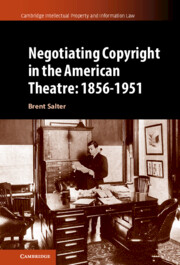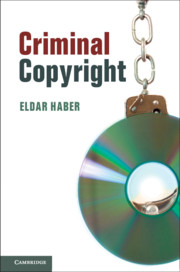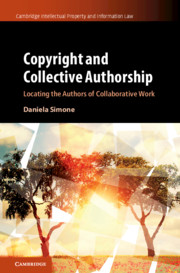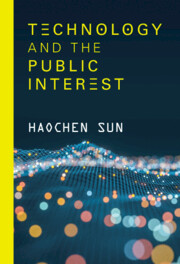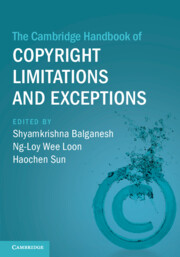Negotiating Copyright in the American Theatre: 1856–1951
Drawing on fascinating archival discoveries from the past two centuries, Brent Salter shows how copyright has been negotiated in the American theatre. Who controls the space between authors and audiences? Does copyright law actually protect playwrights and help them make a living? At the center of these negotiations are mediating businesses with extraordinary power that rapidly evolved from the mid-nineteenth to mid-twentieth centuries: agents, publishers, producers, labor associations, administrators, accountants, lawyers, government bureaucrats, and film studio executives. As these mediators asserted authority over creativity, creators organized to respond, through collective minimum contracts, informal guild expectations, and professional norms, to protect their presumed rights as authors. This institutional, relational, legal, and business history of the entertainment history in America illuminates both the historical context and the present law. An innovative new kind of intellectual property history, the book maps the relations between the different players from the ground up.
- Fills a significant gap in scholarship on law, history, and the performing arts
- Revises our understanding of the institutional and authority structures of the theater industry
- Based on archival sources spanning two centuries
Product details
January 2022Hardback
9781108484756
280 pages
235 × 158 × 19 mm
0.54kg
Available
Table of Contents
- Introduction
- Part I. Mediating the American Theatre:
- 1. Copyright and the facilitation of theatrical production
- 2. The publisher's unpublished empire
- 3. The enduring 'piratical' pursuits of Alexander Byers
- 4. Brokering theatre
- 5. Negotiating playwright integrity
- Part II. The Organizational Response:
- 6. The playwright code
- 7. Carl E Ring and the American Playwright Trade Association
- 8. Trading on 'Its Own Inherent Strength'.

